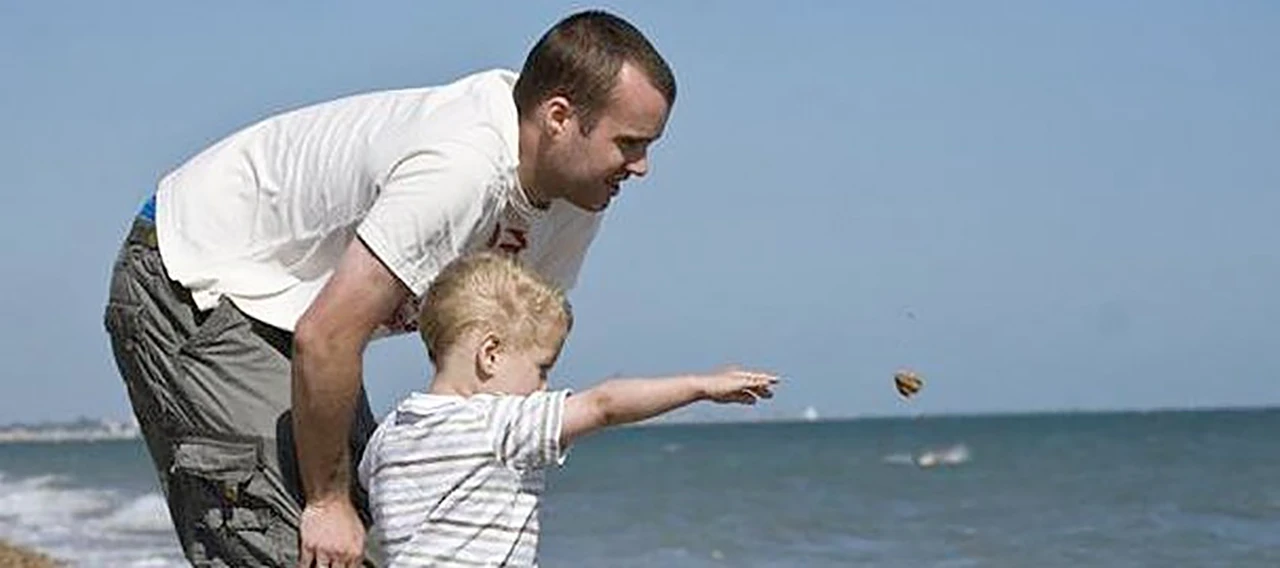When Your Kid Doesn’t Want to Go To Daddy’s House

Parenting after divorce is always challenging, especially when your children act out. One big issue is handling children if they resist visitation with their other parent. Many factors come into play. Here are some questions to ask yourself which can help you determine the source of the problem and understand the reasons why your children are resisting contact with their Dad.
1. Are they feeling guilty or disloyal when leaving your presence? This can easily influence their feelings toward spending time with their Dad.
2. Have they been privy to information, slurs or other comments that make them dislike their Dad? Do they hear you complain about him to family or friends? Are they being raised in an environment hostile towards Dad?
3. Has Dad been mistreating them or disciplining them in a different way than you do? Is the contrast between you two dramatic or extreme?
4. Are you sending mixed messages to your kids about their Dad? Are you co-parenting respectfully with one another – or exposing the kids to conflict and tension?
5. Was their relationship or communication with Dad weak or limited prior to the divorce? It’s hard to establish a more positive relationship post-divorce in families where Dad was absent or emotionally unavailable.
6. Are they holding Dad responsible for the divorce or its outcome? Children, especially as they grow older, can develop strong judgments about their life and blaming one parent is often the outcome.
Any one of these situations can influence a child’s decision regarding visitation and needs to be addressed. In many cases, the parents can resolve the problem by discussing the issues together or with the guidance of a therapist, mediator or divorce coach.
Could you be showing signs of depression or neediness or talking about missing your kids so much that they are afraid to leave you? This creates a guilt mindset in the home. Your kids take on the parenting role and feel guilty loving or wanting to be with Dad. If this is the case, you are doing them an injustice and robbing them of the joys of having two parents to love.
I highly suggest that you sit down with your kids to find out what their feelings are. Have they been comfortable in both homes? Are the rules in each home too different or even conflicting? Have outside issues such as getting to school on time, bullying neighbors or other challenges affecting their well-being? Are your children afraid of spending time alone with one parent? And if so, why?
These are complex and highly charged issues. Again, seeking the advice of a professional counselor or divorce coach can be useful for both parents in uncovering the motivation behind your children’s behavior or anxieties.
Keep in mind that kids will often tell a child-psychologist “secrets” they’re not comfortable telling Mom or Dad. Listen to your children without judgment or lecturing. That only puts them on the defensive and stops the flow of communication. See if a family meeting to resolve issues together will work. When everyone contributes to and agrees on new rules they are more likely to be followed.
While visitation issues are certainly a legal matter, it’s essential that parents be pro-active in non-legal ways as well. It’s much easier and saner to handle situations related to your children within the family than by giving up your power to judges and courts when avoidable. Get the help you need from caring professionals who embrace the child-centered divorce philosophy and address these issues as soon as possible. Your children will appreciate your care and loving attention – and thank you when they are grown.
Children benefit from having healthy relationships with both parents whenever possible. By being attentive to seeing the world from their perspective and responding proactively, hopefully, everyone in the family will benefit and visitation issues can be resolved harmoniously for all concerned.
